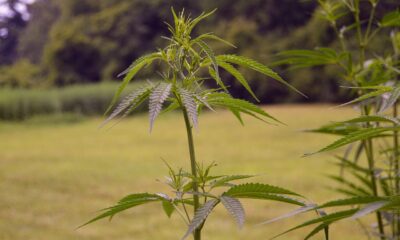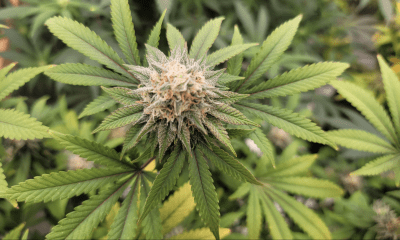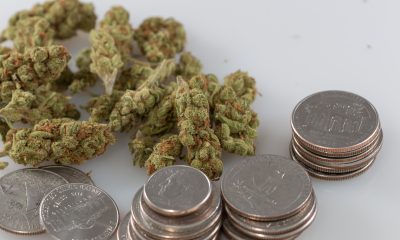Politics
Presidential Candidate Proposes Medical Marijuana Waivers For Military Veterans

Military veterans should be able to receive waivers to obtain medical cannabis, even in states where it’s not legal, 2020 Democratic presidential candidate Andrew Yang said in a new proposal concerning veterans issues.
Additionally, the entrepreneur-turned-politician said that veterans should be able to access marijuana through U.S. Department of Veterans Affairs (VA) providers.
“The scientific evidence that certain controlled substances—particularly marijuana—are particularly effective at treating certain ailments common to veterans (e.g., PTSD) and for pain management,” the plan on his campaign website states.
“While I’m in favor of legalizing marijuana at the federal level, if that takes time, we need to provide waivers for veterans so they can receive this treatment, as well as prescribe it through the VA,” Yang said. “This includes waivers and prescriptions for veterans residing in states that currently don’t allow for personal use or medical exceptions for marijuana use.”
There has been significant interest this Congress is passing legislation that provides veterans with access to medical cannabis. The House Veterans’ Affairs Committee held a hearing last month to discuss various legislative proposals to secure that access, including a bill that would allow VA doctors to recommend cannabis in states where it’s legal and another that would require VA to conduct clinical trials on the therapeutic potential of marijuana for conditions that commonly afflict veterans.
But Yang’s proposal seems to go beyond cannabis. He said the government should “also fund research into other controlled substances that have been shown to hold promise for treating PTSD and other diseases, and provide similar waivers and prescriptions should these other substances prove efficacious.”
Though he doesn’t specify what “other controlled substances” he has in mind, it seems likely that psychedelics such as psilocybin and MDMA would fall under that category, as research has indicated that both may have therapeutic potential to treat conditions such as PTSD.
Marijuana Moment reached out to Yang for comment, but he was not immediately available.
“We owe it to our veterans to do everything possible to help them manage any health issues they have,” Yang said.
While marijuana reform hasn’t been a centerpiece of Yang’s campaign, he supports legalization and said in April that he would grant presidential pardons to all federal inmates convicted of marijuana offenses.
“We should regulate it—but it should not be criminal, it should not be state-by-state, it should be legal in all 50 states,” he said in a tweet on Monday.
Marijuana is already legal in most states for medical use and in many for recreation. It's time to end the ambiguity and legalize it at the federal level. This would improve safety, social equity, and generate billions of dollars in new revenue based on legal cannabis businesses. pic.twitter.com/NQkhcEZd1L
— Andrew Yang (@AndrewYang) July 22, 2019
“Marijuana is not a cure-all, it’s not completely benign,” he added. “But it is, in my mind, a superior pain relief approach to many of the other things that are legal in this country that we’re dispensing such as many addictive opiates that unfortunately are now become a massive plague in many communities.”
While a number of veteran and cannabis-focused pieces of legislation have been introduced this Congress, VA representatives have broadly opposed the bills—even one that would require VA to survey veterans on their experiences with marijuana.
The Veterans’ Affairs Committee held a closed-door meeting earlier this month to discuss a path forward to encourage VA research into the medical potential of cannabis for veterans.
“Medicinal cannabis may have the potential to manage chronic pain better than opioids and treat PTSD, and clinicians need to understand the efficacy of this drug and any negative side effects,” Chairman Mark Takano (D-CA) said. “In those states that allow medicinal cannabis, VA doctors should be able to provide recommendations to veterans for medicinal cannabis programs.”
But Yang’s unique plan to provide waivers for veterans who use medical cannabis goes a step further in its inclusion of those who live in states that haven’t legalized, and it would likely face a steep, uphill battle with VA given the department’s resistance to more modest proposals.
Congressional Committee Holds Closed-Door Meeting On Medical Marijuana Research For Veterans
















